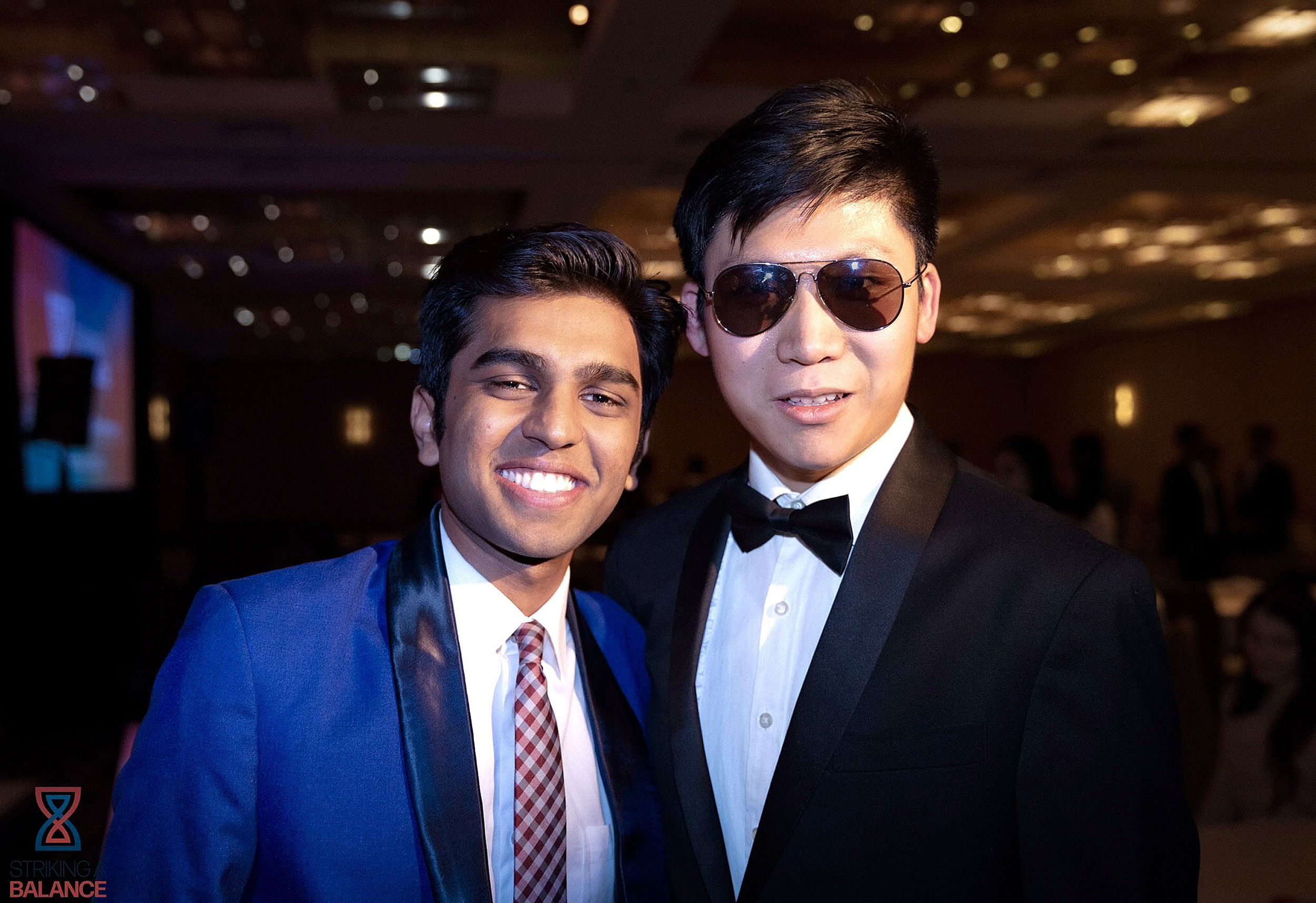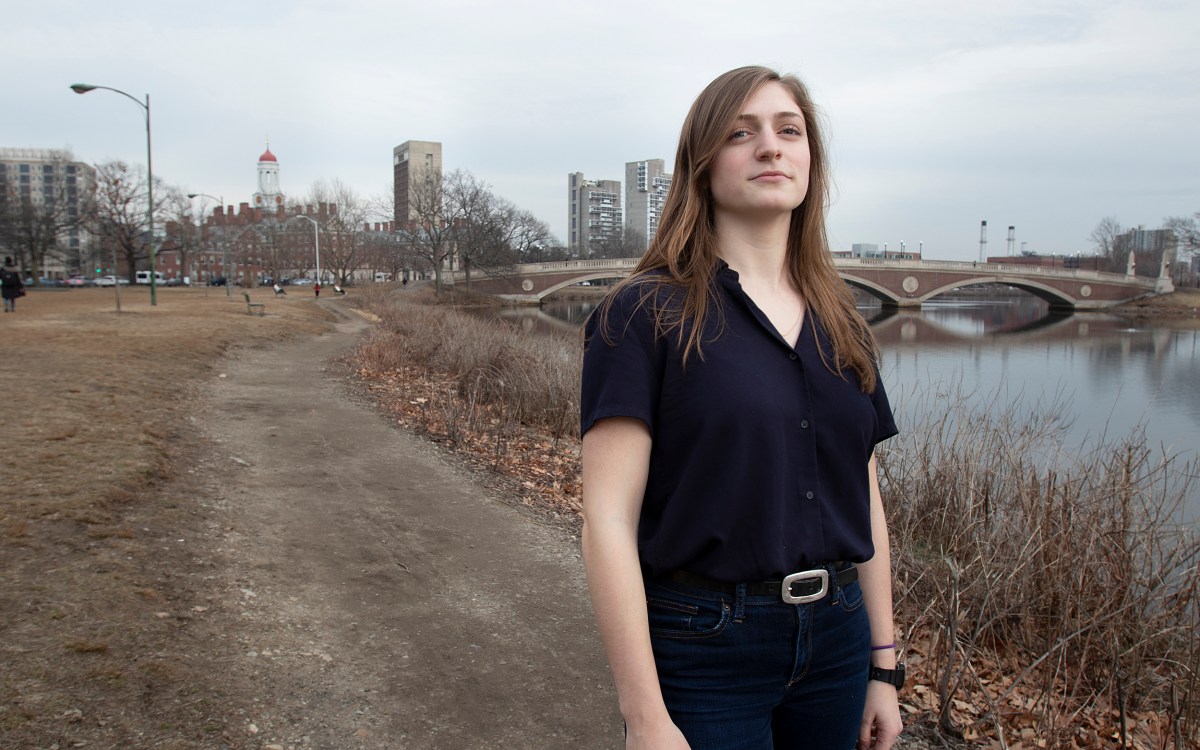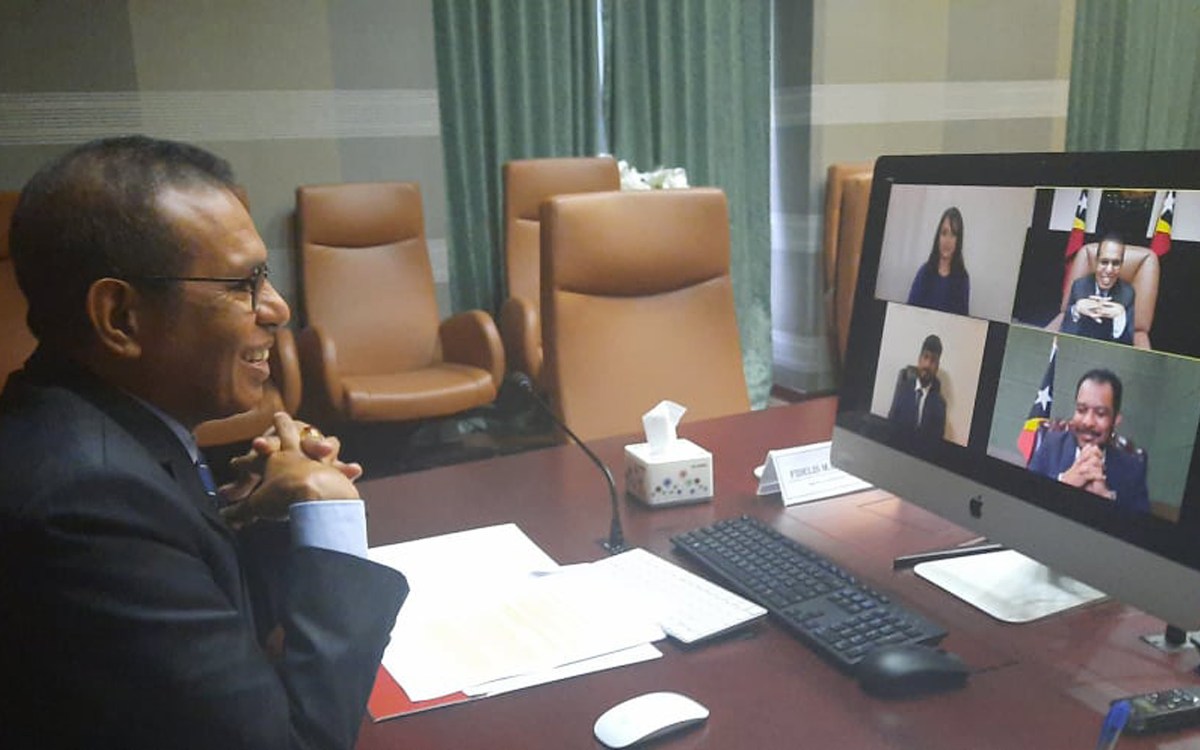
Zeel Patel ’22 (left) and Eric Lin ’22 at last year’s Harvard HPAIR Conference in February.
Photo by Joshua Chiang Photography
Project for Asian and International Relations goes virtual
By bowing to pandemic, student conference trebles participation
Juniors and Quincy House residents Zeel Patel and Eric Lin excitedly took the reins of the Harvard College Project for Asian and International Relations last summer as its new co- presidents. They looked forward to hosting the group’s two flagship student-run conferences — one in Cambridge and one in an Asian city — carrying on the 30-year-old group’s longtime tradition of creating spaces for a global cohort of students and young professionals to connect to one another.
But when the COVID-19 pandemic worsened, they had to cancel their summer conference in Taipei, scheduled for August. They were disappointed, but undeterred. Given the logistical obstacles and ongoing political and public health uncertainties, Patel and Lin designed a virtual version of their winter conference, which would normally take place on Harvard’s campus.
This weekend, young Asian professionals, students, and others from around the country will join them to learn from speakers including Tedros Adhanom, director-general of the World Health Organization; Kevin Sneader, the CEO of consulting firm McKinsey & Company; and Yang Lan, a media executive and talk-show host known as the “Oprah Winfrey of China.” So far, more than 1,800 participants have registered to attend.
“We realized a lot of the friction points for running a conference were no longer there in a virtual setting. Speakers wouldn’t have to fly in to our site and stay in hotel rooms, and then speak at the conference. They could just dial in from anywhere, and the same [was true] with the delegates,” said Patel, a computer science and neuroscience concentrator from Calgary, Canada. “So we wanted to be really ambitious about the speakers we invited and how we organized it.”
Using their computer science skills and knowledge of the Silicon Valley start-up world, Patel and Lin secured a contract with events platform Run the World to manage delegate coordination, breakout rooms, one-on-one pairing with mentors, and social events. It’s a move that the team hopes will help bring the intimacy and collaborative spirit of an in-person gathering to delegates logging on from more than 10 time zones worldwide.
The theme of the conference is “Embracing Change,” with a focus on the democratization of information and providing networking resources to students and young people who lack the access to high-powered individuals that a Harvard education can provide. The conference is free for Harvard undergraduates and HPAIR offers scholarships for low-income delegates, no matter where they are located.
“Eric and I saw this as a really cool opportunity to leverage the power of software and make our conference super-accessible to everyone,” said Patel.
“We see these resources offered at well-off institutions like Harvard, and in Western countries more generally, but the same opportunities are not present in other areas,” added Lin, a computer science concentrator from McLean, Virginia. “We want delegates to see what, for example, the CEO of McKinsey’s vision is for the world, and be able to talk to him in an intimate setting. I hope it triggers inspiration and ignites some kind of motivation for them to explore beyond their local communities.”
The changes to the conference format haven’t deterred interest from would-be participants; sign-ups from applicants for the 2021 meeting are more than three times what they have been in the past. Lin attributed the increase to the outreach and promotion work by the planning team of 40 Harvard students and their 30 counterparts at Asian universities.
The growth of the conference also allowed the team to expand in a new way. In previous years, financial margins were tight. But after the unexpected bump in revenue and reduced costs from this year’s conference, HPAIR will donate a portion of the funds raised by the conference to the Bill and Melinda Gates Foundation.
These achievements are a “testament to how hard our team has worked to get this up and running and to grow it in a completely different new way, [and was] a full team effort,” said Lin.
“I hope Harvard students [who attend] can see the different cool organizations that are part of Harvard’s campus and what they can be involved in when they’re back on campus,” said Patel. “[Eric and I] have similar immigrant backgrounds, and [with HPAIR], it’s been exciting to see what life is like in developing countries, and then put a spotlight on it so that other people who haven’t had that exposure can see it.”
HPAIR Harvard Conference 2021: Embracing Change runs Jan. 15-18. Content from the conference will be available on the group’s YouTube channel later this month.







